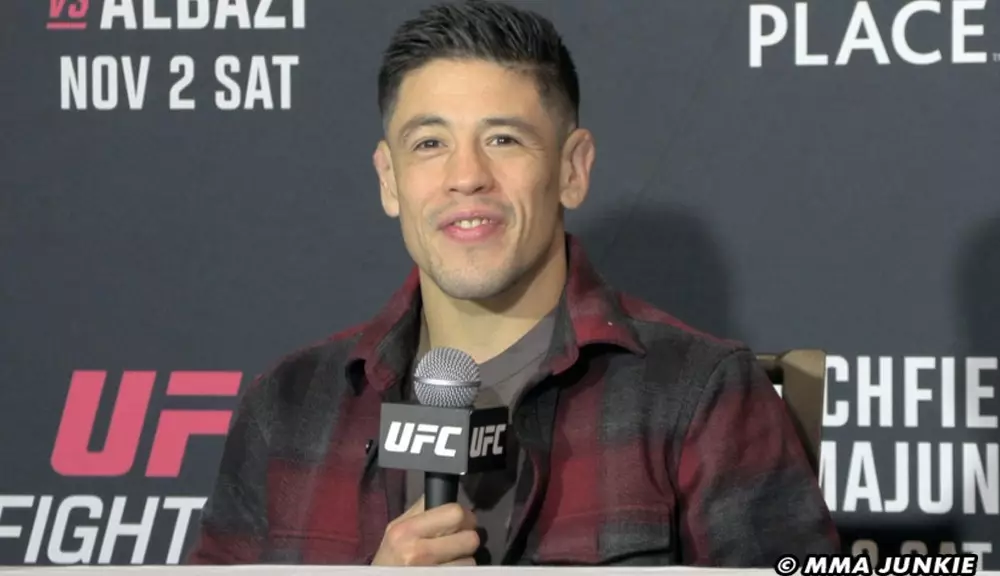Brandon Moreno’s upcoming fight against Amir Albazi at UFC Fight Night 246 marks a significant moment in the career of the former two-time UFC flyweight champion. After experiencing a tumultuous few months, characterized by setbacks and overwhelming pressure, Moreno’s journey to this point is more than just about physical readiness; it’s about mental rejuvenation and self-discovery.
Moreno’s decision to step away from the octagon came after realizing the immense toll the sport and its accompanying pressures had taken on him. Having lost the flyweight title to Alexandre Pantoja by a narrow split decision in July 2023, and another close fight against Brandon Royval in February 2024, the 30-year-old fighter reached a turning point. Competing in seven consecutive main event bouts since December 2020, he found himself transitioning from a fierce contender to a prominent figure in Mexican sports culture. This change brought visibility, expectation, and, inevitably, stress, compelling him to confront his need for a respite.
Moreno’s candidness about his mental struggles highlights a seldom-discussed aspect of sports—athletes are often seen as invincible, and their vulnerabilities can plunge into the shadows. “I’m human, man,” Moreno asserts, emphasizing the emotional weight he carried as he navigated the responsibilities tied to fame. Breaking away from the relentless grind became essential not just for his physical health but for his overall well-being.
As Moreno prepared for a prolonged hiatus, the prospect of returning to fight just three weeks into his break was tantalizing. UFC 306, coinciding with Mexico’s Independence Day celebrations, offered an enticing opportunity for the champion to reclaim his spotlight. However, the wisdom of his family and coaches prevailed, reminding him to prioritize his mental health and familial bonds over immediate competition.
This internal conflict is relatable for many professionals across various fields. The pressure to perform and succeed can blur the lines between personal needs and public expectations. Moreno’s eventual choice to embrace a break offers an invaluable lesson: sometimes stepping back leads to a more robust comeback.
Upon his return, Moreno exuded an infectious enthusiasm that had shone through in his earlier years with the UFC. His joy for the sport, often overshadowed by the stress of competition, became rekindled through his time spent with family and the chance to reflect on his career. “My energy feels amazing,” he stated during a recent media event, a visible shift from the intensity that marked his previous fights. This refreshed mindset arms him with newfound vigor heading into the octagon.
Moreno’s encounters with defeat did not diminish his confidence in his skills. Despite the setbacks against Pantoja and Royval, he maintains a firm belief in his abilities and his position within the competitive landscape of MMA. His achievements and experience have fortified his readiness to compete, and now, he is motivated to exhibit the knowledge and skills he acquired throughout his training.
Looking forward to the clash against Albazi, who remains undefeated in the UFC, Moreno seems to embrace the challenge with both humility and assertiveness. He recognizes Albazi’s abilities but feels equally poised to demonstrate his own. This balance of respect and confidence exemplifies his growth, transforming the pressure of competition into a source of motivation rather than dread.
Ultimately, Moreno’s story embodies the essence of resilience—determination, vulnerability, and the quest for balance. As he embarks on this new chapter, both fans and fellow fighters eagerly anticipate the return of a not just a fighter but a champion who has redefined his career and his outlook on life. In the end, his journey serves as a compelling reminder that even in the face of adversity, one can emerge stronger, both inside and outside the ring.

